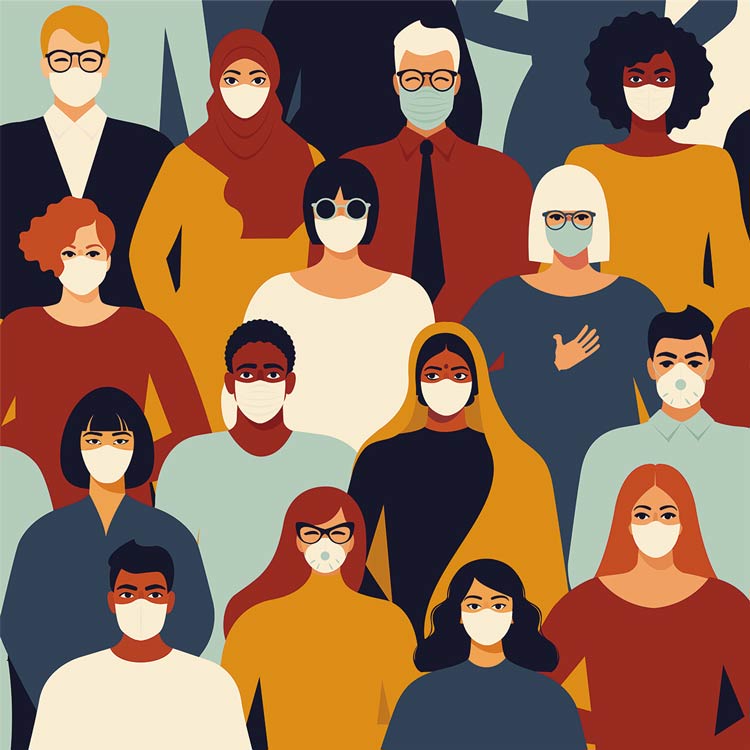It has been almost a year since the COVID-19 pandemic has come upon us. Let’s pause and think about the universal and human behavioral lessons we have learned.
We are certainly all humbled by this pandemic. We thought we knew everything and could fix or find a solution to just about anything in an instant. As our personal and work lives have dramatically changed, we have learned there many personal issues we need to ponder, as we all pivot to regain our equilibrium.
• Is working remotely better than commuting?
• How can we adapt to our business relationships that were previously anchored by in-person encounters.
• How we can re-define our necessities. Are they family, friends, health and faith?
• How to achieve happiness in ways that are fulfilling, when “in-person” social and work encounters are limited.
• For many of us, we are learning how to better balance our professional development with additional child-rearing responsibilities.
• Our days, weeks and months are merging, and our past, present and future are difficult to discern. Especially when this pandemic constantly challenges our ability to get ahead of it.
• What is the takeaway from this traumatic experience?
Working Remotely
Remote working has been a surprisingly “workable” alternative for those of us who work in conventional office settings.
Disadvantages
• There is a distinct intensity.
• We have to plan and orchestrate our collaboration with colleagues.
• It’s more challenging to achieve a work/life balance. Taking breaks for exercise and regular family meals can be difficult.
• The act of commuting had provided an easily discernible marker that helped us separate each day.
Advantages
• Working at home is safer.
• It is more comfortable working without wearing a mask.
• There is substantial savings in commuting time and money.
• It allows for more family time.
• You can successfully collaborate with colleagues and even catch up on everyone’s experiences during videoconference meetings, huddles and instant messaging.
10 Lessons We Learned During COVID-19
1. We see that while science and medical guidance are critical, it is not easy to balance these disciplines with our natural desire for individuality.
2. We can change our daily habits of social interaction if it is a matter of safety.
3. Technology has proven to be an invaluable asset to maintaining business and social connectivity.
4. We have developed a new found admiration and compassion for those who are “essential workers.” The definition of “essential workers” has expanded exponentially with teachers, storekeepers, nursing home workers and many others who deserve to be included in this
5. We learned to keep up our business and personal “network” because global pandemics do happen.
6. While shopping online has proven critical, we also realized we do not have to purchase things we don’t need. It is a lot healthier to appreciate what we already have.
7. The quiet, old-fashioned escapes of walking, reading books and poems, listening to music and conversing, are more critical to our peace of mind than many of us thought.
8. There is a cherished value to our maintaining our personal and everyday relationships. Indeed, interacting with neighbors, colleagues, friends and family, lifts us up as well.
9. As all of us struggle with the physical and emotional toll the pandemic takes; it is good to pause every day and count our personal blessings and appreciate what we have.
10. Finally, we learned that despite this (hopefully) once-in-a- lifetime experience, we are all getting in touch with ourselves. In fact, no matter whether we are young or old, we are capable of growing from our experiences, and absorbing new lessons.

